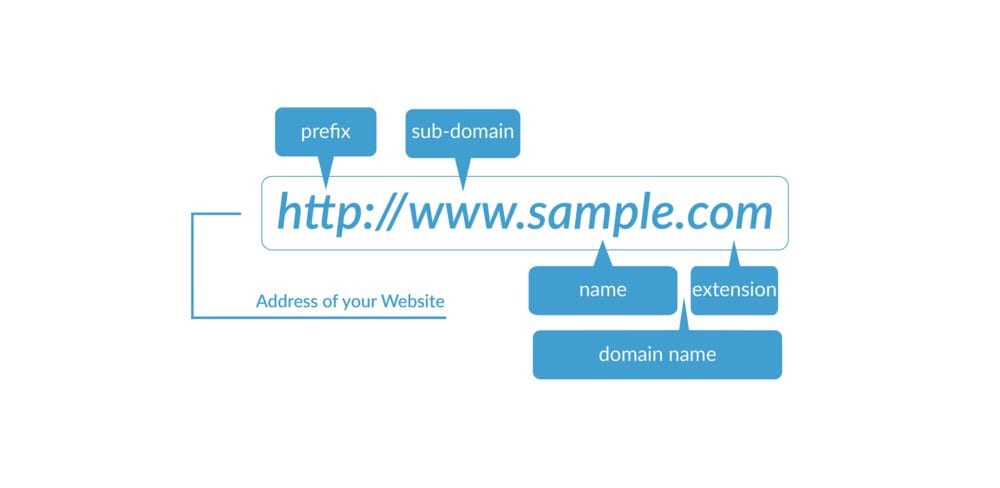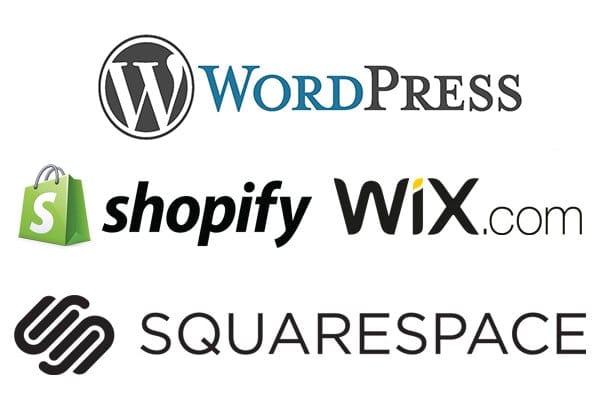Getting Started on Your Website- Everything You Need to Know
The modern era has brought about exciting new ways to promote brands, products, and ideologies online to the billions of users across the globe. The key to unlocking this virtual world and its benefits lies with having a unique website that establishes your digital presence and enables interaction with stakeholders. In recent times, websites have managed to turn the fortunes of many entrepreneurs and small business owners by unlocking new markets and exposing products and services to a wider audience.
On a quest to join the modern trend, many entrepreneurs and business owners often struggle on how best to launch a website for their businesses. There is a lot to consider before embarking on this online journey such as ‘What type of website suits your business?’, ‘Should you go for professional developers or make a DIY website?’, ‘What’s the ideal domain to use?’, and a lot more questions that define the website and how it brought to life. In this short article, we are going to quickly explore how you can get started on your website to establish a solid online presence for your for-profit or non-profit organization.
In this article we will discover everything you need to know to get started with your business website:
- Establishing Solid Goals For Your Website
- Website Features
- Types of Websites
- What is a Website Domain?
- Web Hosting, what is it?
- Content Management Systems
- DIY vs. Freelancer vs. Agency
- What’s Next After Site Launch
Establishing Solid Goals for Your Website
Every project or undertaking needs well-defined goals or aims that define a purpose for all the activities or efforts being made. This helps to measure progress and set feasible targets. When developing your website, you also need to follow a similar execution process. Set the key goals that you wish to attain with the website after it’s developed and functional. In other words, what purpose is your website going to serve? With so many website types available, this is very essential as it automatically eliminates some types and affirms others.
If you’re are running a small business or trying to launch a start-up, the common goal at such an early stage is to establish visibility on the market and raise brand awareness. You may also want to promote your products or services so that they can compete with other products in that particular niche. These immediate goals will, therefore, help you to map a way forward and find the right fit of a website that promotes those goals’ attainment.
Since businesses are ongoing entities, you also need to consider your long-term goals when launching a business. Most entrepreneurs or small business owners start-off very small and grow their product or service ranges with time. This implies business evolvement, meaning that the outlook of the entity will change with time as new products are rolled out and the older ones are refined. All these changes should also be reflected on your business website hence suggesting that it needs to be adaptable to change. If your future goals do not include business expansion or evolvement, then your website can be static, destined to retain the same features always.
Website Features; Perfecting UI & UX Designs
Despite the existence of millions of websites online, it’s essentially impossible to find any two that are identical in appearance, available features, or any other key aspect. Each website is designed with a unique purpose that demands its own set of features. On your journey to establishing a business website, it’s very crucial that you carefully consider the features that will shape your site.
Website features are determined by the activities of your organization. As such, certain website types come with certain features that are known to be essential for that website category. For instance, business websites are designed to support payment gateways which enable clients to pay for the products or services that they are seeking online. Will your clients be ‘shopping’ on your site? If so, you’ll need to provide features that offer demonstrations or media representations of your products that clients can view, just like a regular product catalog.
Website features are highly reliant on the UI & UX designs which are basically the building blocks of what people see on your site and the functions that it offers. As such, aim for great UI & UX designs that your clients respond well to and find convenient to make your website extremely user-friendly.
Type of Websites
There are numerous types of websites, each one offering a set of unique features and functionalities that can promote different activities and promote certain goals. Once again, your business activities and goals will most likely determine the type of website to choose from. Let’s take a quick look at some of the common website types that entrepreneurs and small business owners can make use of;
- eCommerce Website
The eCommerce website type is one of the most popular websites among entrepreneurs. It is designed specifically to handle commercial activities online, specifically the selling of products. eCommerce websites allow clients to view, order, and pay for products online, just as one would normally do in a traditional store setup. They often support numerous payment methods such as PayPal and credit cards for secure payment convenience and they collect and compile client data for shipping purposes.
This website is ideal for small businesses that cannot afford to have physical premises hence enabling backyard or home businesses to broaden their customer base without investing much in brand/product promotion or marketing.
- Business Website
Business websites provide a more comprehensive feel of the business entity than eCommerce websites. They are designed to represent the business fully in a digital format, without solely focusing on the sale of goods or services. As such, business websites are designed and fully branded using the company emblems, colors, logos, etc. They also contain the various features that one would normally find at a physical business site e.g. mission statements, mottos, customer service sections, descriptions, etc.
Business websites can also provide sales services, allowing clients to purchase goods just like eCommerce websites. They will, however, often offer more features such as customer support. The distinction is, however, often very slim hence the two are often interchangeable.
- Portfolio Website
Portfolio websites essentially function as extensive and fully-detailed curriculum vitae. This kind of website is designed to provide an online demonstration of capabilities for businesses, organizations, or even individuals. It is often popular among professionals or providers of professional services that need to convince their clientele with tangible evidence of previous work.
- Brochure Website
This is another unique form of a business website that entrepreneurs can make use of to boost their business operations. Brochure websites provide a simple form of online business presence where potential clients can browse through the products or services on offer by a particular business. They are often made up of a few pages filled with product details such as specs and images, ideal for a low-budget website effort for businesses that sell high-turnover items such as gadgets and fashion accessories
Other unique types of websites include Entertainment Websites which are designed to entertain online such as Buzzfeed, Media Websites for the provision of news, stories, or general media broadcast, Non-profit Websites for organizations such as WHO which allow the essential communication of updates on the organizations and sometimes accepts donations from well-wishers, Educational Websites for institutions to serve all stakeholders like student registration and conducting nine learning, Personal Websites such as blogs and photo diaries, as well as a lot more other types.
 What is a Website Domain?
What is a Website Domain?
If you’ve been exploring the subject of websites, you’ve likely come across the terms ‘website domain’. Simply put, a website domain is the presence of a particular entity online. As such, the web domain of a particular website is its online identification credentials unique to it. The domain name, therefore, becomes the site’s address e.g. www.netflix.com
Wondering where to get a domain for your business? These domains are bought and it’s critical to source them from trusted sources to avoid being spammed. Our favorite domain provider is Google domains due to its secure nature and privacy features. Other popular sources of domain names are GoDaddy.com and domain.com.
Web hosting, what is it?
This is another key aspect of launching a business website. Web hosting can be considered as a platform that contains or ‘hosts’ your website so that internet users can access it from anywhere on the globe. There are various website hosting services available, depending on each website’s needs such as managed hosting, vs VPS, and shared hosting.
Content Management Systems (CMS)
A CMS is essentially a software app designed to help website owners to manage their online content. It enables you to control the creation, uploading, modification, or design of your digital content. As such, it is essential for businesses with websites who may need to occasionally add, edit, or remove content from their site. There are various CMSs, the most popular of them being;
- WordPress
- Wix
- Squarespace
- Drupal
- Shopify
DIY vs. Freelancer vs. Agency
Having established all the specifics that you want for your website, the question now remains as to who will create this website for you. There are mainly 3 options available, namely the use of online DIY tools such as WordPress, the use of Freelance developers, or hiring a developing agency to handle the job. Your decision should consider several factors such as the cost of each method, the time taken before delivery depending on the urgency of the project, the quality of service required, and the nature of the website i.e. its scope. Each of these options comes with its own set of pros and cons that can help you to decide. Let’s just take a look at the main ones;
Pros
DIY
– Minimum development costs.
– Fast delivery when using pre-designed website templates.
Freelancer
– Fast Turnarounds.
– Negotiable fees.
Agency
– Fully customized product.
– Great continuity if you ever decide to update, and better security.
Cons
DIY
– Generic website similar to million others online.
– Limited website Functionality.
Freelancer
– Higher security risks involved.
– Poor idea continuity & blending if you ever decide to improve or upgrade the site.
Agency
– Higher development costs.
– Formalities and protocols may result in delivery delays.
What Next After Site Launch?
Once your website is finally launched and live, you can now start to enjoy the benefits of the digital community.The main focus here is to find simple ways to drive traffic to your site. This traffic will generate business for your products or services and set you off on a path to success. There are multiple ways of generating such traffic. Let’s take a quick look at the 2 most popular ones;
- SEO Techniques
SEO simply represents ‘Search Engine Optimisation’. This is the diligent process by which websites attain a high priority listing in the search results on search engines such as Google. For instance, when a person searches for ‘car washes’ on Google, the search results are listed depending on their SEO rankings.
As such, search engines award a ‘score’ to each website based on various factors such as the quality of your website design, the quality of content on your site, user feedback, spam tendencies, etc. SEO is often handled by SEO specialists through proper SEO-conscious web designing or SEO content that uses the ideal keywords relevant to your website’s niche.
- Social Media Marketing
With billions of people active on social media, it has become one of the most effective marketing platforms, and the cheapest too! Social Media Marketing employs a variety of unique ads across numerous social media platforms such as Instagram, Facebook, and Twitter. SMM is known for bringing instant results as far as traffic generation is concerned, directing millions of users to your website through specially designed ads.
All in all, the decision to launch your own website is the best decision you can ever make for the sake of growing your small business or promoting your entrepreneurial activities. Websites are the new marketplace of the century and they are guaranteed to change your fortunes if executed properly. For the best results and full utilization of websites in promoting your operations, it’s always advisable to opt for professional developers who can fully customize the website to suit your unique brand. Good luck!



